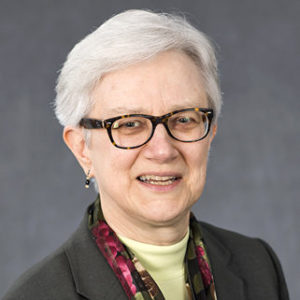
Readings:
First Reading: Numbers 11:25-29
Psalm 19:8, 10, 12-13, 14
Second Reading: James 5:1-6
Gospel: Mark 9:38-43, 45, 47-48
In today’s Gospel, Jesus is confronted by the disciples who perceive that their status of belonging to an exclusive and empowered group is being threatened in some way: “…someone driving out demons in your name, and we tried to prevent him because he does not follow us” (Mk. 9:38). That person was not a member of the close-knit group of Jesus’ followers.
Rather than moving with his considerable authority to quash the person from ministering in his name, Jesus immediately cuts through the disciple’s complaint, asserting a deeply grounded wisdom: “There is no one who performs a mighty deed in my name who can at the same time speak ill of me. For whoever is not against us is for us. Anyone who gives you a cup of water to drink because you belong to Christ, amen, I say to you, will surely not lose his reward” (Mk. 9:39-41). It is as if to say – God is the source of all power and authority, and nothing will ultimately thwart the coming of the Reign of God!
As the first reading shows, this kind of concern for exclusive status is not new in the experience of the people of Israel (or in our own time). A similar complaint was brought to Moses concerning the newly minted Elders Eldad and Medad (Num 11:27-28). In that instance, God’s spirit had exceeded the boundaries of “the gathering” and inspired those two men, and they prophesied. Moses’ response is not only profound, but it is clearly leveling. Moses points to God as the ultimate guidepost; the reality is that the people are “of the Lord” (v. 29). If that is the case, it is the Lord who is acting here, and Moses is not about to stop it! In fact – it seems – he would certainly encourage more of that kind of activity from the Lord’s people!
At this time – though the liturgical calendar names it ordinary – in so many ways it is not at all ordinary, especially for Catholics, as we cope with horrific revelations of sexual abuses and divisions within our Church. At this time we need to take to heart the insightful moral wisdom of Moses and Jesus for our own empowerment, healing, and sustenance for continuing on the journey to the Reign of God. It is ultimately “the precepts of the Lord that give joy to the heart” (Ps 19:9).
Wisdom similar to that of Moses and Jesus – but clearly for our time is expressed by Bishop Vincent Long Van Nguyen of Parramatta, chairman of the Australian bishops’ social justice council, in a September 19, 2018 interview in America – Faith Interviews. Himself a victim of sexual abuse, Bishop Nguyen has remained faithful to Christ and the Gospel way of life. In that spirit, he points out:
If we are to make the church a safe and healthy environment for children and vulnerable adults, we must not only hold the perpetrators and enablers to account but also explore the cultural and structural reforms needed to move the church forward.
Critical among these is the exercise of power. Abuse of a sexual nature is often a manifestation of abuse of power. An effective response to the crisis must include, therefore, an examination of the exercise of power in the church, not only among the clergy but also in the very structure of the church. A healthy approach to and exercise of power is grounded in an understanding of power as relational and intended for service, rather than as dominance, entitlement and privilege.
Any attempt at ridding the church of child sex abuse by clergy will have to deal with its root causes…
The culture of clerical hegemony has been solidly entrenched in the Catholic Church since it began to take center stage in the Roman Empire. It is a by-product of the model of church, which sees itself as self-sufficient, superior to and separate from the outside world. Its security, reputation and internal relationships are the center of attention. The church in this model becomes the church of the ordained at the expense of the baptized. As a result, the ordained becomes an exalted and elitist club that protects the interests and privileges its members. This explains the obfuscation and cover-up, which is so endemic to this club mentality. It is a far cry from the model of the Humble Servant at the Last Supper and it is a powerful ingredient and ideal condition for the disease of clericalism to fester.
In my opinion, we really need to, once and for all, jettison that clericalist model of church. It has served us well beyond its use-by date. The church as understood and articulated by the Second Vatican Council sees itself as a pilgrim People of God, incarnate in the world. It is a new paradigm — one that is based on mutuality not exclusion, love not fear, service not clericalism, engagement with the world not flight from or hostility against it, incarnate grace not dualism. The time has come for us to embrace and implement unambiguously and decisively the vision of the pilgrim church that the Second Vatican Council entrusted to us. The time has come for the church to be truly the church of the baptized and together with the ordained, all the People of God can create a new culture of humility, accountability and service.
May God grant to all of us, in the multiple situations of violence and divisiveness that exist in our day, the openness to the consoling, healing, empowering Spirit to guide us to a new way of life and living.
Dawn M. Nothwehr, OSF, Ph.D.
Professor of Catholic Theological Ethics